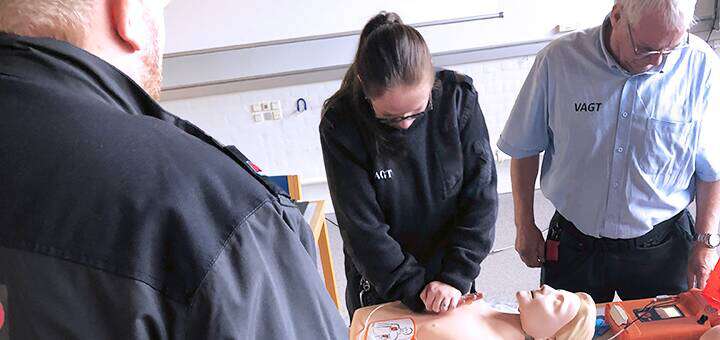If you run a business, you care about the well-being of your employees. First aid plays a vital role in this and brings many benefits when the right equipment and training are in place. But what exactly does the law require regarding workplace first aid?
What does the legislation say about first aid in business?
In Switzerland, the Employment Act states that employers are responsible for ensuring suitable first aid measures are in place in the workplace. This includes access to first aid equipment and defibrillators, knowledge of evacuation plans, and first aid training.
There are no fixed requirements for equipment and training. Instead, the employer must assess the workplace risks and, based on this, ensure that appropriate equipment and training are available. Equipment must also be placed where it is easily accessible to all staff.
Risk assessment by industry
The legal requirements apply across all industries, but each sector has different risks and therefore different needs for equipment and training:
- Companies working with chemicals should include an eye wash station in their first aid kit.
- High-risk production environments or construction sites face a greater chance of injury, making first aid training highly advisable.
Some situations are worth preparing for regardless of industry:
Cardiac arrest can happen at any time, and rapid intervention is critical. A defibrillator is a wise investment that could save a life, even if you hope never to use it.
A basic first aid kit ensures rapid treatment for injuries until professional help arrives. Adjust the contents to reflect your specific workplace risks.
The benefits of first aid training
Beyond legal compliance, first aid training offers major benefits:
- Greater safety: Staff can respond quickly and correctly in emergencies.
- Prevention: Training makes employees more aware of risks, helping prevent accidents.
- Improved well-being: Demonstrating a commitment to safety builds trust and confidence.
Get help assessing your risks
It can be difficult to identify all workplace risks. Protectas offers tailored first aid equipment and training to help you meet your legal obligations while creating a safer workplace for everyone.




